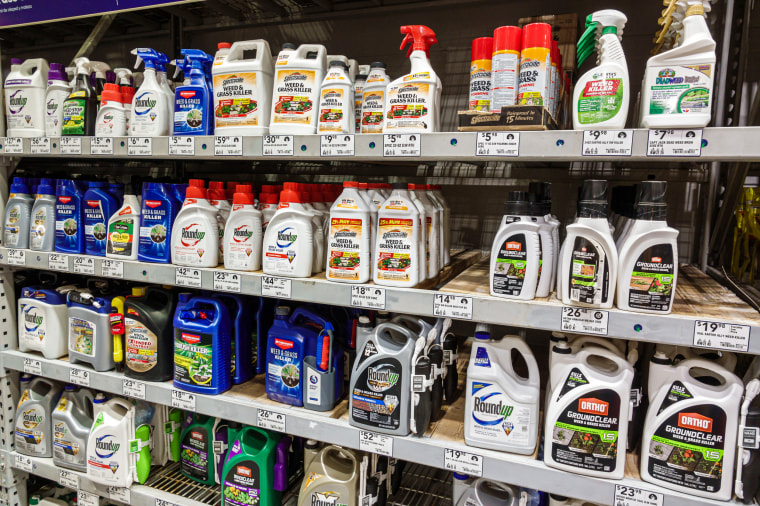A Pennsylvania man who said Bayer's Roundup weed killer caused his cancer was awarded $2.25 billion by a Philadelphia jury.
John McKivison, 49, was diagnosed with non-Hodgkin’s lymphoma "after using Roundup on his property for 20 years," his attorneys, Tom Kline and Jason Itkin, said in a joint statement. He sued Monsanto Co., which is owned by Bayer, in the Philadelphia Court of Common Pleas.
On Friday, the jury handed down the verdict, which includes $2 billion in punitive damages.
"The jury's unanimous verdict was a condemnation of 50 years of misconduct by Monsanto and a declaration that its misconduct was in reckless disregard of human safety and a substantial cause of John McKivison's cancer," Kline and Itkin said.
They said the award amount "sends a clear message that this multi-national corporation needs top to bottom change."
Bayer said it disagreed with the verdict and believes it has "strong arguments on appeal to get this verdict overturned and the unconstitutionally excessive damage award eliminated or reduced."
"While we have great sympathy for the plaintiff in this case, we are confident that our products can be used safely and are not carcinogenic, consistent with the assessments of expert regulators worldwide," it said.
Several cancer patients and their estates have sued the company, including a man in California who was awarded $332 million and a man in Philadelphia who was awarded $175 million. Bayer has said it will appeal both verdicts.
In 2015, the World Health Organization's International Agency for Research on Cancer released a report suggesting glyphosate, the key ingredient in Roundup, is "probably carcinogenic to humans."
Years later, the U.S. Environmental Protection Agency said it "found that there are no risks of concern to human health when glyphosate is used in accordance with its current label" and is "unlikely to be a human carcinogen."
"EPA did not agree with the International Agency for Research on Cancer (IARC) conclusion that glyphosate is 'probably carcinogenic to humans,'" the agency wrote. "EPA considered a significantly more extensive and relevant dataset than the International Agency on the Research for Cancer (IARC). EPA’s database includes studies submitted to support registration of glyphosate and studies EPA identified in the open literature."
